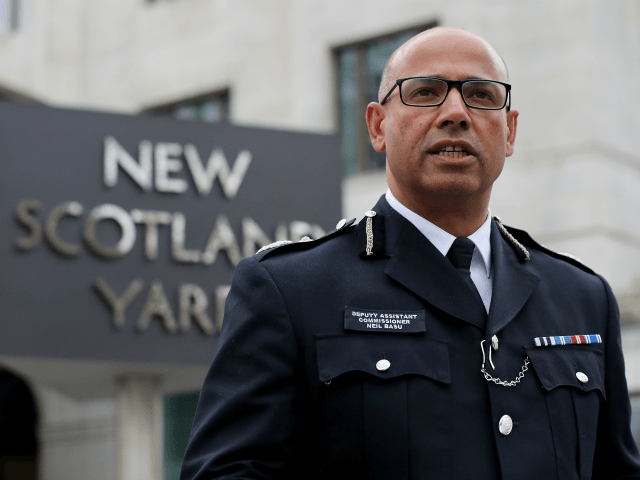Assistant Commissioner Neil Basu has said that British Muslims should not feel that they have to “assimilate” into British society and that “bullying, racism, [and] bigotry” could be to blame for some people being vulnerable to terror recruitment.
Assistant Commissioner Basu, the UK’s highest-ranking officer of south-Asian heritage, told The Guardian in an interview that “Assimilation implies that I have to hide myself in order to get on. We should not be a society that accepts that.”
“You should be able to practise your religion without suffering some condemnation of that; so my view is, do no harm. And that does not matter whether you are conservative Islamic, conservative Christian, conservative Hindu, conservative Sikh. You should be able to practise your culture or religion openly and still be accepting of others, and others be accepting of you. That is a socially inclusive society,” he added.
Basu is widely-respected in Whitehall and is seen as the next potential head of London’s Metropolitan police, which also has national responsibilities for coordinating and leading on counter-terrorist activity. In a major departure from the position that terrorism needs to be tackled through policing and security services, the assistant commissioner told the left-liberal newspaper that the UK must improve social mobility and engage sociologists and academics to reduce terrorism.
Saying that the country must uncover why a person would want to commit a terror attack against the United Kingdom, Basu said: “I want good academics, good sociologists, good criminologists … to be telling us exactly why that is.”
The senior officer theorised that despite the high prevalence of terror being Islamist inspired, with jihadist attacks often later claimed by the Middle East-based Islamic State, because 80 per cent of terror suspects are born or at least raised in Britain, the problem must be closer to home, saying “that has got to tell us something about our society”.
He went on to say that in the fight against terrorism, more “policies that go towards more social inclusion, more social mobility and more education” are needed and “are much more likely to drive down violence … than all the policing and state security apparatus put together. It is much more likely to have a positive effect on society.
“The prescription for me is around social inclusion – it’s social mobility, it’s education, it’s opportunity.”
Further painting potential terror recruits as victims who were “malleable” to negative influence, Basu blamed societal ills and human fragilities for why some people are more susceptible to terror recruiting that others, saying: “It might be everything from high anxiety, to lack of confidence, lack of education, things that may have happened to them when they are young, bullying, racism, bigotry, lack of opportunity, early experiences with law enforcement even, domestic violence.”
Mr Basu was recently criticised for telling media that publishing leaked diplomatic memos, following the Kim Darroch affair, “may also be a criminal matter”, raising concerns over freedom of the press issues. The Met assistant commissioner then made an open order to the leakers to “turn yourself in at the earliest opportunity, explain yourself and face the consequences”.

COMMENTS
Please let us know if you're having issues with commenting.